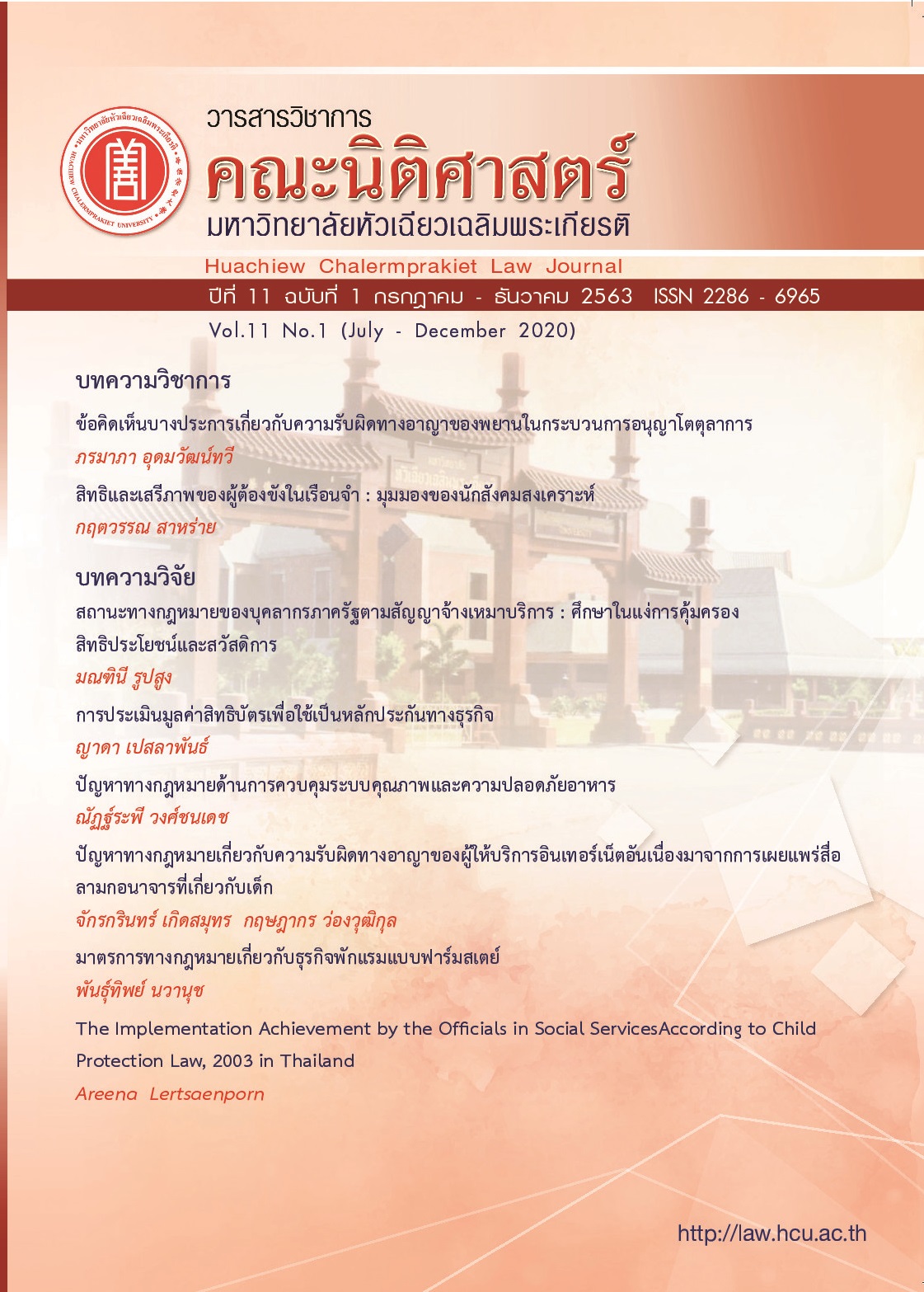A Legal Problem regarding a Control of Food Safety and Food Quality
Abstract
This article aims to study issues related to food safety in the supply chain with regards to a quality control system as well as a preventive method for any problems that might be occurred from unsafe food by applying existing legal procedure.
The research is a qualitative research. The author gathered legal information and legal documents in relation to a quality control system, a quality control operation and prevention under Thai and foreign laws, namely European Union and People’s Republic of China. In addition, the research used a quantitative method by interviewing government officials and private entrepreneurs.
From the study, the author found that a food safety control system in Thailand imposed the GMP system as a fundamental standard for a food quality control. In particular, the GMP system has its legal binding as a law. However, for a higher standard system which is widely accepted internationally such as the HACCP or ISO22000 is prescribed as a voluntary standard. Moreover, in terms of the traceability, in Thailand, there is still no related enforcement mechanisms and any operations. Furthermore, there is no sufficient collaboration among authorities in regulating such activity. This led to operational problems for all related stakeholders.
To this extent, the article proposes that Thailand should amend existing legal measures such as the Food Act B.E.2522 and the Public Health Act B.E.2535 in order to strengthen capacity to support all possible situations that might be happened or to prevent all potential problems related to food safety. This is to assist more people consuming safe food.
Downloads
Published
How to Cite
Issue
Section
License
บทความหรือข้อความคิดเห็นใด ๆ ที่ปรากฏในวารสารฉบับนี้เป็นวรรณกรรมของผู้เขียนโดยเฉพาะ คณะนิติศาสตร์มหาวิทยาลัยหัวเฉียวเฉลิมพระเกียรติ และกองบรรณาธิการไม่มีส่วนรับผิดชอบหรือไม่จำเป็นต้องเห็นด้วยกับข้อคิดเห็นนั้น แต่ประการใด








